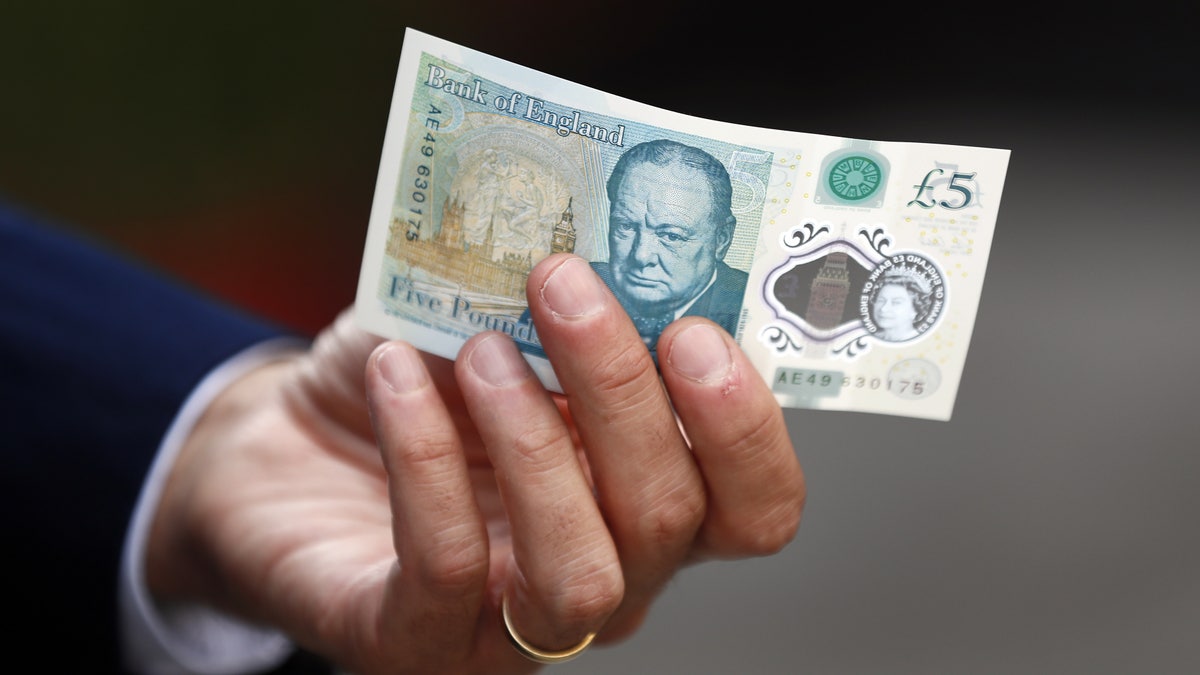
Bank of England governor Mark Carney poses with a new polymer five pound note at Whitecross Street Market in London, Britain September 13, 2016. (REUTERS/Stefan Wermuth)
The Brits launched their first-ever "plastic" bill in September, and at the time made much of its multifarious security measures aimed at deterring counterfeiters.
Everyone seemed delighted with the new 5 bill, which the Bank of England governor described as tough enough to survive "a splash of claret, a flick of cigar ash, the nip of a bulldog and even a spin in the washing machine."
How it stands up to the anger of annoyed vegans, however, is another question entirely.
In response to a question asked on Twitter this week, the Bank confirmed that the bill contains traces of animal fat in the form of tallow, included apparently to help it slide more easily in and out of machines.
@SteffiRox there is a trace of tallow in the polymer pellets used in the base substrate of the polymer £5 notes
— Bank of England (@bankofengland) November 28, 2016
It wasn't long before vegans and vegetarians started hitting social media to voice their alarm at the revelation, upset that the Bank was using animal products in its newest bill.
The obligatory online petition quickly showed up, too, demanding that the Bank of England "cease to use animal products in the production of currency that we have to use." It's already gathered more than 70,000 signatures.
Vegan Dan Hanks told the London Standard he was thinking about boycotting the bill for "the same reason I don't wear leather -- it would make me uncomfortable using something that has (at least partly) come from animal suffering," adding, "I've tried to stop contributing to animal suffering in all other areas of my life."
The petition is still gathering signatures while disgruntled vegans continue their assault on the bill via Twitter:
Can't believe the #fivepoundnote contains the product of an animal when we have the technology and resources to produce it without cruelty.
— Effie Herdman (@EffieHerdman) November 29, 2016
The new five pound notes aren't vegan!! They contain tallow, which is derived from animal fat 😡 #vegan #govegan pic.twitter.com/QQbrsplweh
— The Vegan Punk (@TheVeganPunk) November 28, 2016
However, many tweets on the subject were along the lines of this one:
The Bank of England has so far declined to officially respond to the outcry.
To all #vegans not liking the new £5 notes I'm offering an #exchange I will give u £1 for every new £5 u dont want @bankofengland #tallow
— Beardy Man Jay (@BeardyManJay) November 29, 2016
The new fiver is the U.K.'s first-ever bill made from polymer, a thin and flexible plastic material. Its robust structure makes it more resistant to dirt and moisture, and so it should last around 2.5 times longer -- about five years in all -- than the paper bill it replaced.
Around 440 million new fivers are believed to already be in circulation, which certainly sounds like a whole lot of tallow. The Bank is also introducing its first polymer 10 bill next summer, followed by a 20 bill by 2020, though we'll have to wait and see if the current controversy prompts it to replace the animal fat with a more acceptable substance.
